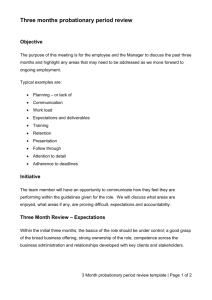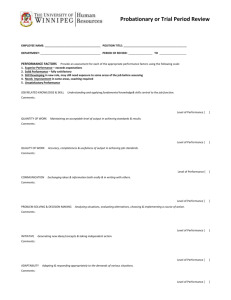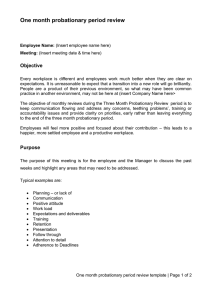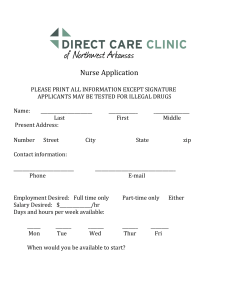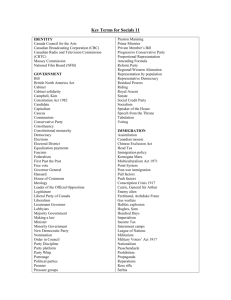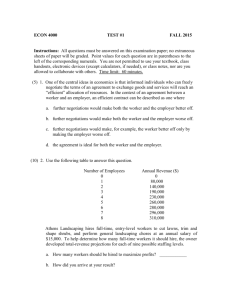Article - Fortun Narvasa Salazar Law Website
advertisement
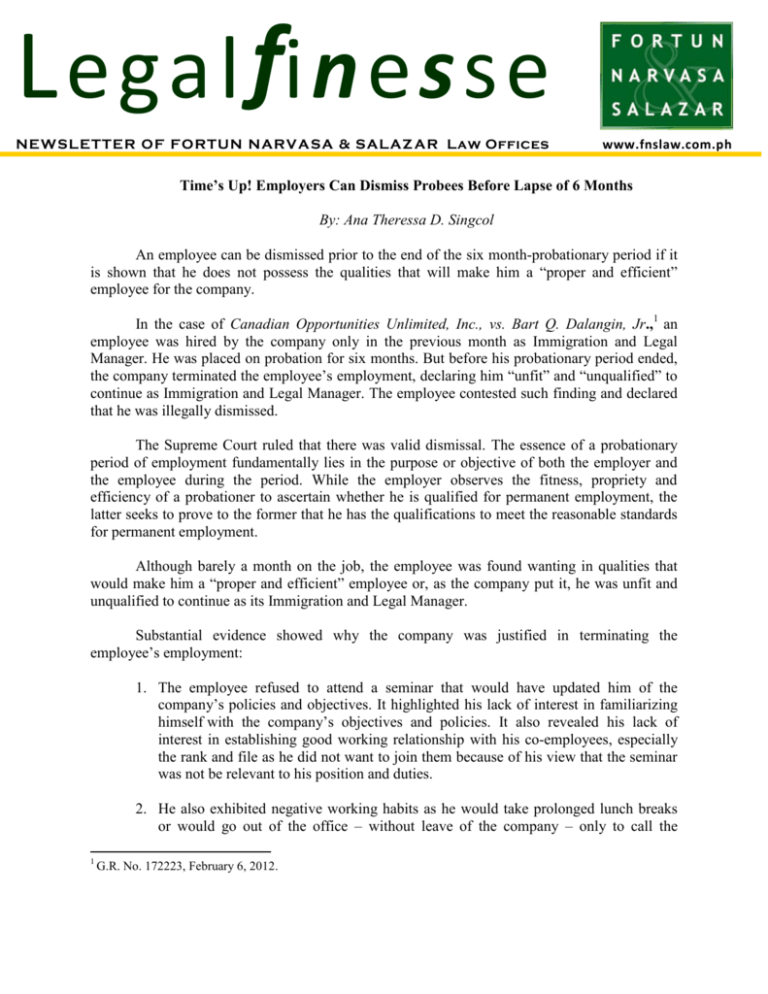
L egal finesse NEWSLETTER OF FORTUN NARVASA & SALAZ AR Law Offices www.fnslaw.com.ph Time’s Up! Employers Can Dismiss Probees Before Lapse of 6 Months By: Ana Theressa D. Singcol An employee can be dismissed prior to the end of the six month-probationary period if it is shown that he does not possess the qualities that will make him a “proper and efficient” employee for the company. In the case of Canadian Opportunities Unlimited, Inc., vs. Bart Q. Dalangin, Jr.,1 an employee was hired by the company only in the previous month as Immigration and Legal Manager. He was placed on probation for six months. But before his probationary period ended, the company terminated the employee’s employment, declaring him “unfit” and “unqualified” to continue as Immigration and Legal Manager. The employee contested such finding and declared that he was illegally dismissed. The Supreme Court ruled that there was valid dismissal. The essence of a probationary period of employment fundamentally lies in the purpose or objective of both the employer and the employee during the period. While the employer observes the fitness, propriety and efficiency of a probationer to ascertain whether he is qualified for permanent employment, the latter seeks to prove to the former that he has the qualifications to meet the reasonable standards for permanent employment. Although barely a month on the job, the employee was found wanting in qualities that would make him a “proper and efficient” employee or, as the company put it, he was unfit and unqualified to continue as its Immigration and Legal Manager. Substantial evidence showed why the company was justified in terminating the employee’s employment: 1. The employee refused to attend a seminar that would have updated him of the company’s policies and objectives. It highlighted his lack of interest in familiarizing himself with the company’s objectives and policies. It also revealed his lack of interest in establishing good working relationship with his co-employees, especially the rank and file as he did not want to join them because of his view that the seminar was not be relevant to his position and duties. 2. He also exhibited negative working habits as he would take prolonged lunch breaks or would go out of the office – without leave of the company – only to call the 1 G.R. No. 172223, February 6, 2012. personnel manager later to inform the latter that he would be unable to return as he had to attend to personal matters. The Court applied the same doctrine enunciated in the case of International Catholic Migration Commission v. NLRC,2 which stated that the probationary term or period denotes its purpose but not its length. In Canadian Opportunities, four weeks was enough for the company to assess employee’s fitness for the job and he was found wanting. The Supreme Court, however, found that the two-notice requirement had not been followed by the employer. This procedural due process shall be satisfied when a written notice is served the employee within a reasonable time from the effective date of termination. The employer in the Canadian Opportunities failed to give a definite time within which the employee could respond to the charge against him so the High Court awarded the employee PhP10,000 for nominal damages. (February 29, 2012) 2 251 Phil. 560 (1989).

